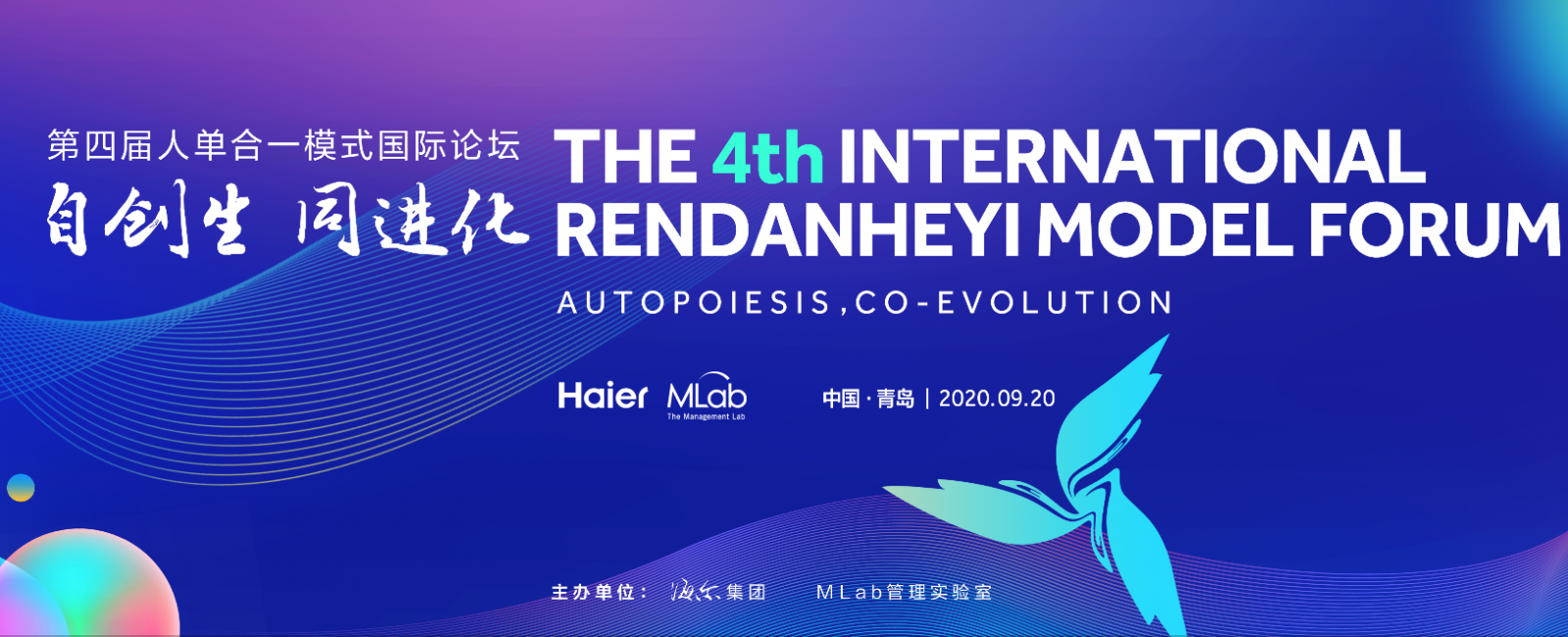
Industry Leaders Awarded for Implementing Revolutionary Rendanheyi and Zero Distance Models
With today’s business world highlighting the user experience and customer needs more than ever, eleven companies, including industry giants and world-leading organisations, won the Zero-Distance Award on September 20 for their user-centric approach.
Laureates of the award include Centigo, Fujitsu Western Europe, GE Alliances, Haier Biomedical, Happy, Haier IoC (Internet of Clothing), Jaipur Rugs, Macmillan, NER Group, Severstal and Think Tank Unit, Diwan the Royal Court of Oman.
The award is presented by the Business Ecosystem Alliance, an international organisation committed to jointly discovering and researching, practicing and communicating business model and organisational model adapted to the development of the era.
All of the awardees stand out in keeping a “Zero Distance” to end users, and constantly create value for users through innovative and customised solutions.
The concept of Zero Distance is profoundly associated with Chinese home appliance giant Haier and its Rendanheyi model, an innovative business model coined by the company’s top leader Zhang Ruimin in 2005.
The model highlights the “human value comes first” philosophy. By encouraging entrepreneurship and empowers every department to operate like a micro-enterprise, it creates a dynamic and open organisational system that stresses decentralisation and disintermediation.
“We are creating an ecosystem that continues to iterate and evolve and provides added value to users,” said Zhang in a recent forum event examining the Rendanheyi model.
Instead of only putting shareholders first, through the new model, “we are looking at each and every individual’s creation of value and really putting humans first,” he said during the opening ceremony of three-day event Rendanheyi Boundaryless Network Opentalk 2020.
This year marks the 15th anniversary of the model’s introduction. The 4th International Rendanheyi Model Forum, which is themed “autopoiesis and co-evolution”, was also held on Sunday.
Zhang’s joint industry experts and scholars for an in-depth discussion on the model and its application in today’s IoT era.
Zhang brought up the idea of “finite and infinite games”, that “finite game is played for the purpose of winning and infinite game for the purpose of continuing to play,” he said, referring to Haier as playing an infinite game.
“By constantly enhancing user experience and understanding their new needs, we are playing an infinite game that cannot be replicated,” he said.
“So what happens is you start to bring the customers in to a shared process of regeneration,” said James Moore, renowned scholar and founder of the business ecosystem theory, about Haier’s model.
“And now what you’re doing is you’re regenerating experiences for the customers. You’re regenerating scenarios of experiences. You’re really regenerating life. And that’s being led by the customers,” he added.
The revolutionary Rendanheyi model and the zero-distance concept is not only wide-recognised by scholars, but is proved efficient through the success of Haier and other enterprises following the same model.
“From a provider of cryogenic storage equipment to a service provider of biosafety scenario solutions in the IoT, the root of such transformation is the iteration of users requirements,” said Zhanjie Liu, General Manager of Haier Biomedical, one of the winners of the Zero Distance award.
“While Rendanheyi has showed us the way to navigate through COVID-19, zero distance has unlocked business opportunities that are propelling GEA success and growth,” said Kevin Nolan, President and CEO of GE Appliances, also a laureate of the award.
Got its name from a Harvard Business School case studying Haier’s customer-centric model, Zero Distance stresses the company’s efficient response to the ever-evolving user needs.
The principles of Zero Distance include a management philosophy that allows the organisation to proactively react to newly identified user needs, an organisational design and processes that eliminate organisational barriers that separate employees from end users, the application of user-focused and independent teams that can move fast and smoothly within the organisation, the end-to-end accountability for the experience of end users to be taken by the company and/or independent teams, the systematic collection, storage and use of end user data in order to increase value for end users, and the commitment to the ecosystem principles of openness, equality, co-creation and co-sharing, according to the studies of Annika Steiber, Director of Entrepreneurship and Innovation at Menlo College.












